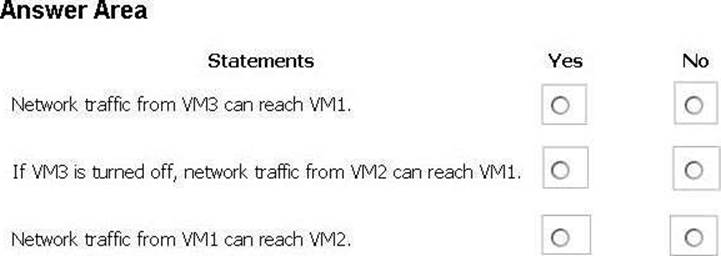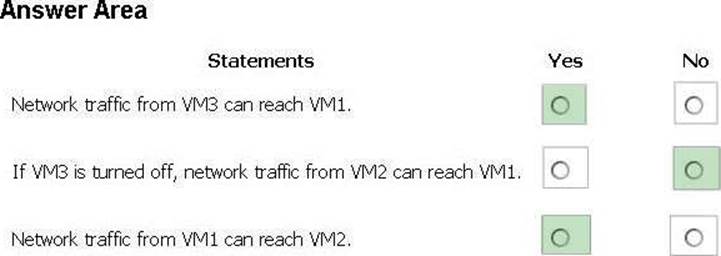You have an Azure subscription named Subscription1.
You have an Azure subscription named Subscription1.
Subscription1 contains the virtual machines in the following table.

Subscription1 contains a virtual network named VNet1 that has the subnets in the following table.

VM3 has a network adapter named NIC3. IP forwarding is enabled on NIC3. Routing is enabled on VM3.
You create a route table named RT1.
RT1 is associated to Subnet1 and Subnet2 and contains the routes in the following table.

You apply RT1 to Subnet1.
For each of the following statements, select Yes if the statement is true. Otherwise, select No. NOTE: Each correct selection is worth one point.

Answer: 
Explanation:
Box 1: Yes
Traffic from VM1 and VM2 can reach VM3 thanks to the routing table, and as IP forwarding is enabled on VM3, traffic from VM3 can reach VM1.
Box 2: No
VM3, which has IP forwarding, must be turned on, in order for traffic from VM2 to reach VM1.
Box 3: Yes
The traffic from VM1 will reach VM3, which thanks to IP forwarding, will send the traffic to VM2.
Reference: https://docs.microsoft.com/en-us/azure/virtual-network/virtual-networks-udr-overview
Latest AZ-104 Dumps Valid Version with 416 Q&As
Latest And Valid Q&A | Instant Download | Once Fail, Full Refund

